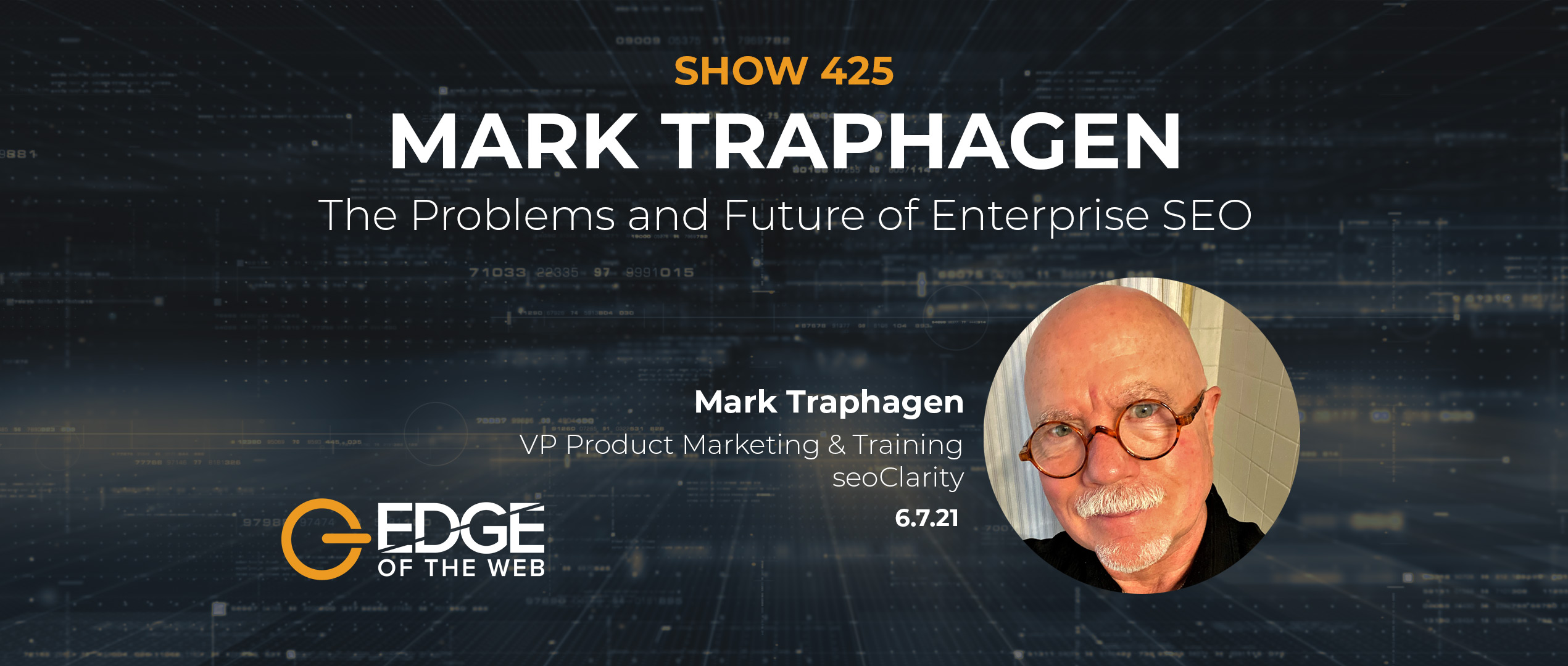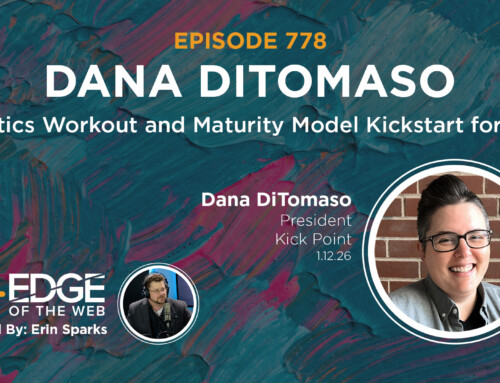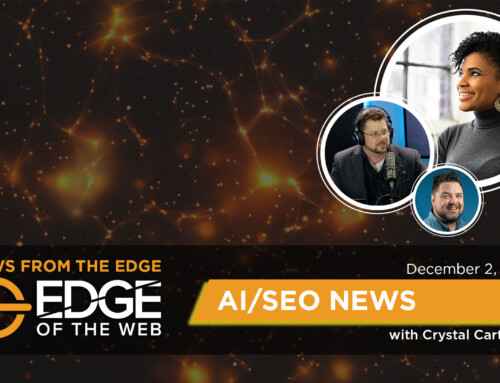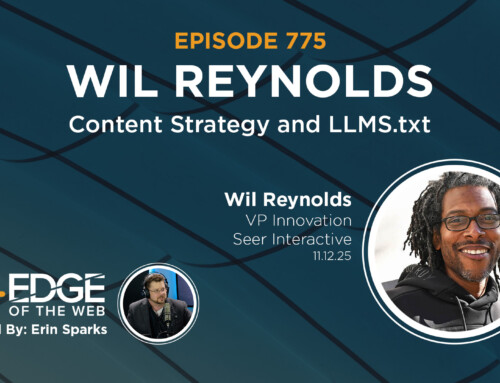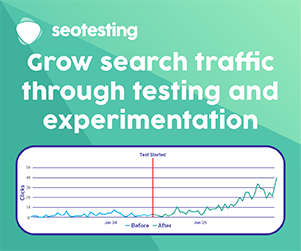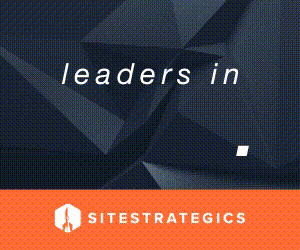What are the problems when analyzing and acting on data from an enterprise-level SEO projects. With hundreds of thousands of pages to deal with, the utilization of machine learning is fastly becoming an essential resource. Mark Traphagen of SEO Clarity gives us their insights into these issues. They also give us a perspective of what is a good make-up of an enterprise SEO skill set. Happy to have been able to catchup with Mark and have a good solid discussion.
- [00:06:22] Getting behind the curtain of Big Data inside of a SEO software provider
- [00:09:20] The biggest issue in enterprise SEO. The time to move from data to insight to action
- [00:13:12] Listening to SEO’s is an important part of developing SaaS SEO software
- [00:14:00] How many enterprise SEOS actually “get” the goals of their business? What have you seen from the most successful SEOs?
- [00:16:34] Do we have to move as fast as Google is?
- [00:21:34] Matching our machine learning to the Google machine
Who is Mark Traphagen?
Mark Traphagen is the VP of Product Marketing and Training at seoClarity. They are a respected speaker and writer of topics including SEO, social media, and Concept Marketing. Mark is considered one of the most influential content and social media authors across various industries. At seoClarity, Mark oversees positioning and market awareness, as well as products and services. They also manage all internal and client-facing training. They’ve been known to offer Enterprise SEO guidance and insights to several firms.
Mark has been a teacher for many years and a salesman for about ten years. When they attended grad school in the late 90s-early 2000s, they began working at the campus bookstore. As the bookstore started to be overshadowed by Amazon, their boss tasked him with making a webpage. Being an avid blogger, Mark built a website and expanded its reach over two years. It was during this time that they stumbled upon SEO. After finishing up school with this positive experience, they moved to North Carolina and began work with an agency. At the agency, they listened, learned, and absorbed, eventually leading them to where they are now.
Behind the Big Data Curtain of Enterprise SEO Industry
At seoClarity, Mark fills an in-house role with an SEO software platform. This has allowed them to take a deeper look at problems and see behind the data curtain. They are exposed to a constant stream of massive amounts of data. They learn from the different strategies that companies use to see what is and isn’t helpful with SEO. Mark can analyze the ranking and shifting environments of data.
Diving into the Biggest Issue with Enterprise SEO: Scalability
When discussing the ways SeoClarity helps its clients, Mark claims that a significant problem within the digital marketing realm is the desire to move fast when analyzing data. They point out one of the biggest problems in Enterprise SEO: scalability. Scale your page, scale the mountains of politics, and scale the abundance of data. Data is coming instantaneously; there is time spent extracting the vital content, determining what the information means, and trying to communicate results to others.
Additional time is then spent on setting up and carrying out the action that fixes a problem or takes advantage of the information analyzed. SeoClarity focuses on the time that scalability takes and aids enterprise-level SEO to move from data to insights and into action. Mark and their team focus on this significant gap in technique at the enterprise level and how to reduce it. SeoClarity offers automated insights that can be gained from the data, making it easier for their clients. Mark claims that machine-learning insights have come to be a necessity.
The Importance of Listening to SEOs and Clients
Mark emphasizes that their assets are their clients because they face the problems that Mark addresses every day. They listen carefully and offer a service that builds what clients ask for. They go into their work, asking themselves, “How can we apply things like machine-learning to solve that problem at the scale it needs to be solved?” For them, machine learning is an experimental lab. Them and their team go through months of testing, learning, and adapting. It’s is crucial to stay informed through forums, videos, and social media to gain insight into what works, what doesn’t, and what people want to view.
SEOs and Understanding Business Goals
Mark explains that SEOs are analytically minded, and there is usually a misunderstanding between them and the executives of the software provider. When asked: “How do SEOs process the goal of business?” Mark says there’s a need to be more integrated to improve workflow and establish understanding.
There’s a success with those who realize that they must integrate SEOs with all the teams, such as marketing and technology. This integration strategy is essential to build relationships and communicate the value of SaaS to the executives. Mark states that websites have become more aware of this necessity, but the question remains of how to track it and make it happen.
Do We Have to Move as Fast as Google?
Mark’s reply to this question: yes and no. Google’s reputation is built on speed. There are ways that you need to be adjusting and staying aware, as Google is moving to improve.
However, Mark says that there’s little value in chasing the algorithm. People think keeping up with Google is essential, which leaves them in a panic, leading to more problems. Mark advises not to panic; to focus on a bigger perspective. The average SEO thinks optimization is keeping up with every bit of change Google makes, but at the moment, it is hard to discern what the changes mean.
There is more value in trying to determine the more significant moves over time. You want to focus on the user experience and show the web search engine that you deserve the traffic to your page.
Matching Our Machine to the Google Machine: Worth it?
Mark asserts that trying to match our machine to Google’s machine isn’t beneficial. We must understand the larger context and where the market is heading when it comes to machine learning. Mark teaches clients to concentrate on bigger issues. They push the URA principles: usability, relevance, and authority. Usability determines if the site is accessible to search engines and users. Relevance focuses on the content, optimization, internal linking, and everything that helps Google match you with the best audience. Authority focuses on how you demonstrate to search engines that you’re a trusted authority.
These principles help set priorities. Through seoClarity, Mark offers the Actual Insights tool, which assesses issues within your site and possible opportunities, then assigns priority levels to them. This tool drives results and optimizes task management, as well. Mark finds success when they are bringing their client’s results.



